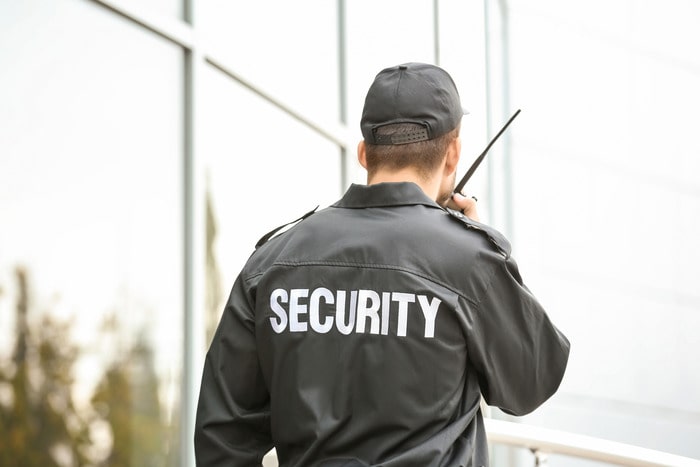Construction sites are often vulnerable to security threats, including theft, vandalism, and unauthorized access. A construction site security guard plays a crucial role in ensuring the safety of materials, equipment, and personnel. Their responsibilities go far beyond just patrolling the site; they must also be prepared for crisis situations, enforce safety regulations, and manage potential risks. In this article, we will explore the key duties of a construction site security guard and how they contribute to a secure working environment.
Patrolling the Site to Prevent Unauthorized Access:
One of the primary responsibilities of a construction site security guard is conducting regular patrols to prevent unauthorized access. Construction sites are often large and open, making them an easy target for trespassers. Security guards follow a planned route to check for any signs of intrusion, open gates, or broken fences. They also ensure that only authorized personnel, such as workers, contractors, and delivery staff, are allowed on-site.
By maintaining a visible presence, security guards deter potential criminals and unauthorized individuals. Their patrols also help in detecting safety hazards such as exposed wiring, unsecured materials, or potential fire risks, which can be addressed before they lead to accidents.
Monitoring Surveillance Systems and Reporting Suspicious Activity:
Modern construction sites are equipped with surveillance cameras, motion detectors, and alarm systems to enhance security. A security guard is responsible for monitoring these systems to identify any suspicious activity. If they notice anything unusual, such as unauthorized individuals or unusual vehicle movements, they must take immediate action by investigating further or notifying law enforcement.
Surveillance monitoring also helps in gathering evidence in case of incidents such as theft or vandalism. Security guards must be vigilant and attentive while observing security feeds to prevent any threats before they escalate.
Enforcing Safety Regulations and Site Rules:
In addition to protecting against security threats, construction site security guards also play an important role in enforcing safety regulations. Construction sites are hazardous environments where workers must follow strict guidelines to prevent accidents. Security guards ensure that all personnel comply with site-specific rules, such as wearing safety gear, using designated pathways, and following fire safety protocols.
They also monitor for any violations, such as unauthorized equipment use, reckless behavior, or unreported hazards. By maintaining strict safety enforcement, security guards help reduce workplace accidents and create a secure environment for workers.
Managing Access Control and Visitor Verification:
Controlling access to the construction site is one of the key responsibilities of a security guard. They are stationed at entry and exit points to verify the identity of all individuals entering the premises. This includes checking employee IDs, logging visitor details, and ensuring that delivery personnel have the necessary authorization.
By implementing strict access control measures, security guards prevent unauthorized entry and reduce the risk of equipment theft, material loss, and potential sabotage. They also ensure that subcontractors and suppliers adhere to the site’s security protocols.
Responding to Emergencies and Crisis Management:
Construction sites are prone to various emergencies, including fires, medical incidents, structural collapses, and security breaches. A security guard must be prepared to respond quickly and effectively in such situations. Their role includes alerting emergency services, assisting in evacuations, and providing first aid if necessary.
Crisis management also involves handling conflicts or disputes among workers and ensuring that situations do not escalate into physical altercations. Security guards are often trained in de-escalation techniques to manage tense situations calmly and professionally.
Preventing Theft and Vandalism:
Construction materials, tools, and machinery are valuable assets that are often targeted by thieves. Security guards are responsible for preventing theft and vandalism by maintaining a strong security presence on-site. They conduct routine checks on storage areas, inspect vehicles leaving the site, and report any missing or tampered equipment.
Guards also work closely with law enforcement in case of theft, providing reports and assisting with investigations. Their role in asset protection is vital in minimizing financial losses for construction companies.
Documenting Incidents and Maintaining Security Reports:
Accurate documentation is essential in security operations. Security guards maintain detailed records of their patrols, incidents, and any suspicious activities observed on the site. These reports are used by site managers, law enforcement, and insurance providers to assess security risks and take necessary actions.
Incident reports include information about security breaches, accidents, property damage, and responses taken during emergencies. Proper documentation ensures accountability and helps improve security measures for future projects.
Coordinating with Law Enforcement and Emergency Services:
In cases of serious security threats, a construction site security guard must coordinate with local law enforcement and emergency services. Whether it’s reporting a burglary, handling a protest, or responding to a medical emergency, their ability to communicate effectively with authorities is crucial.
Security guards may also assist law enforcement in gathering evidence, providing witness statements, and ensuring the site is secure while investigations take place. Their cooperation helps ensure swift responses and better outcomes in emergency situations.
Final Thought:
A construction site security guard is an essential part of any building project, ensuring the protection of personnel, materials, and equipment. Their responsibilities go beyond patrolling—they must also enforce safety protocols, respond to emergencies, prevent theft, and coordinate with authorities. With the increasing risks in the construction industry, having well-trained and vigilant security personnel is key to maintaining a safe and productive work environment.

